If you own chickens, you’ve probably noticed that everything likes to eat them. Predators see chickens as an easy meal and it is our job as their keepers to protect them from wild animals and neighboring dogs. Sometimes, even your own dogs may think that your chickens are a fun play toy. Learning how to predator proof the chicken coop and run is the most efficient way to keep would-be diners at bay.
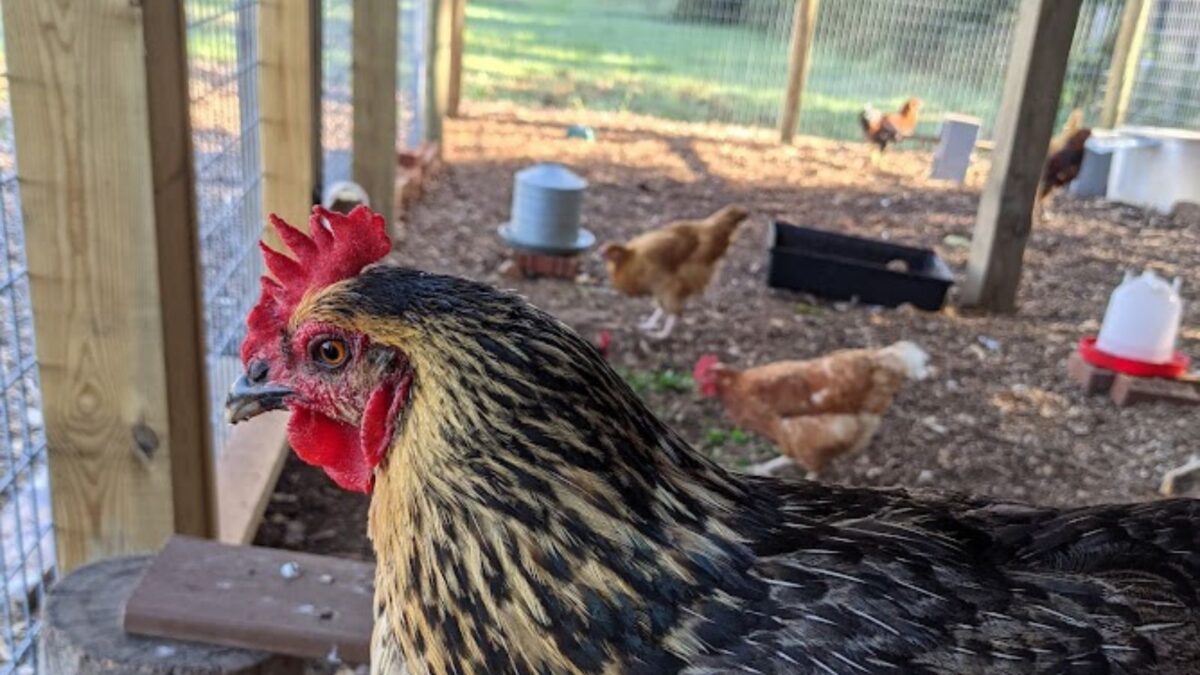
How To Predator Proof The Chicken Coop And Run
Predator-proofing the coop
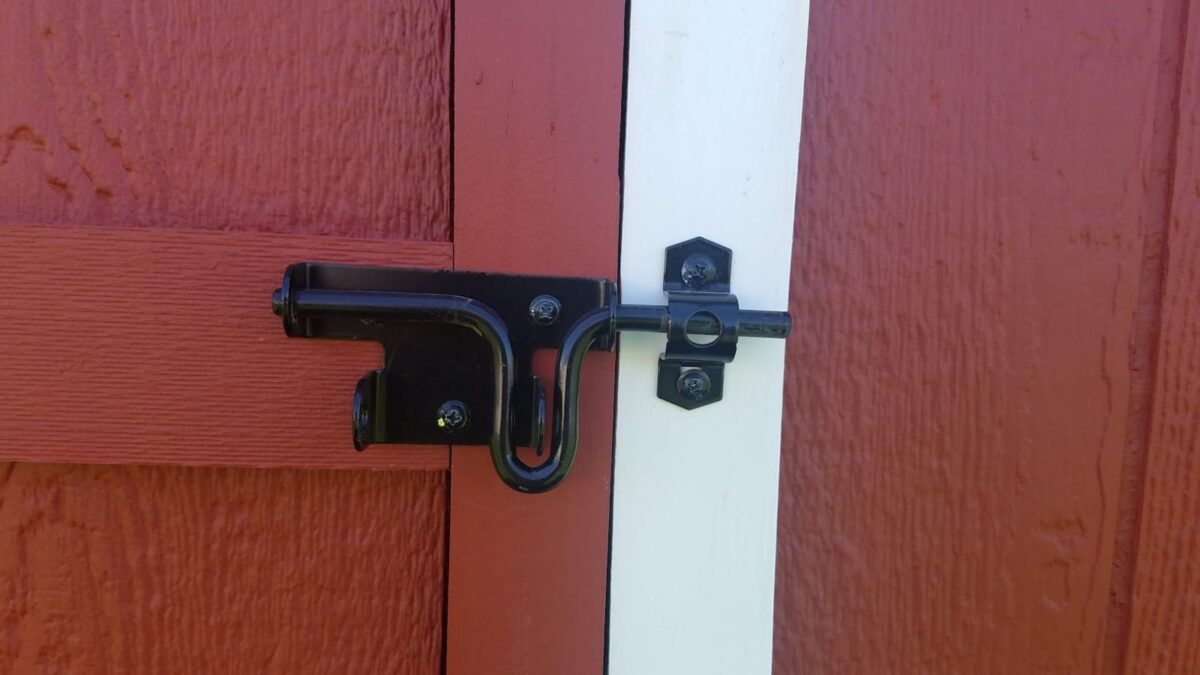
Your coop should be made of strong, sturdy materials that cannot be penetrated by digging paws and gnashing teeth.
All hardware should be heavy-duty and rustproof.
Building your own coop out of quality wood materials is the best way to ensure your coop is predator-proof. Most prefabricated coops are made of softwood and are not very sturdy. I would avoid a prefab coop if at all possible. The old saying “you get what you pay for” definitely applies when talking about coops.
Make sure any vents or windows are covered in quarter-inch hardware cloth. Chicken wire is not an effective deterrent for larger animals and can easily be bent and broken if a predator is determined enough. Remember that snakes and mice can get through some pretty small openings so cover these with hardware cloth as well.
All latches and hinges should be heavy-duty and made of rust-resistant material. A double latching system adds an extra layer of security against your more intelligent predators such as raccoons, who are notorious for figuring out how to undo latches.
If using an automatic door be cautious of how early you set the door to open. Nocturnal predators are sometimes still on the prowl right around dawn and can pose a threat if you are not there to monitor them at this hour. I would suggest programming the door for when the sun is mostly up. This time will vary throughout the year as the seasons change and daylight savings time comes into play. Also, be aware of when the door closes in the evening. You might need to check to make sure all birds are getting back in the coop in time before the door shuts. I personally do not use an automatic door. I feel more comfortable letting them out and putting them up myself every evening. That way I am sure that everything is on the up and up.
Predator-proofing the run
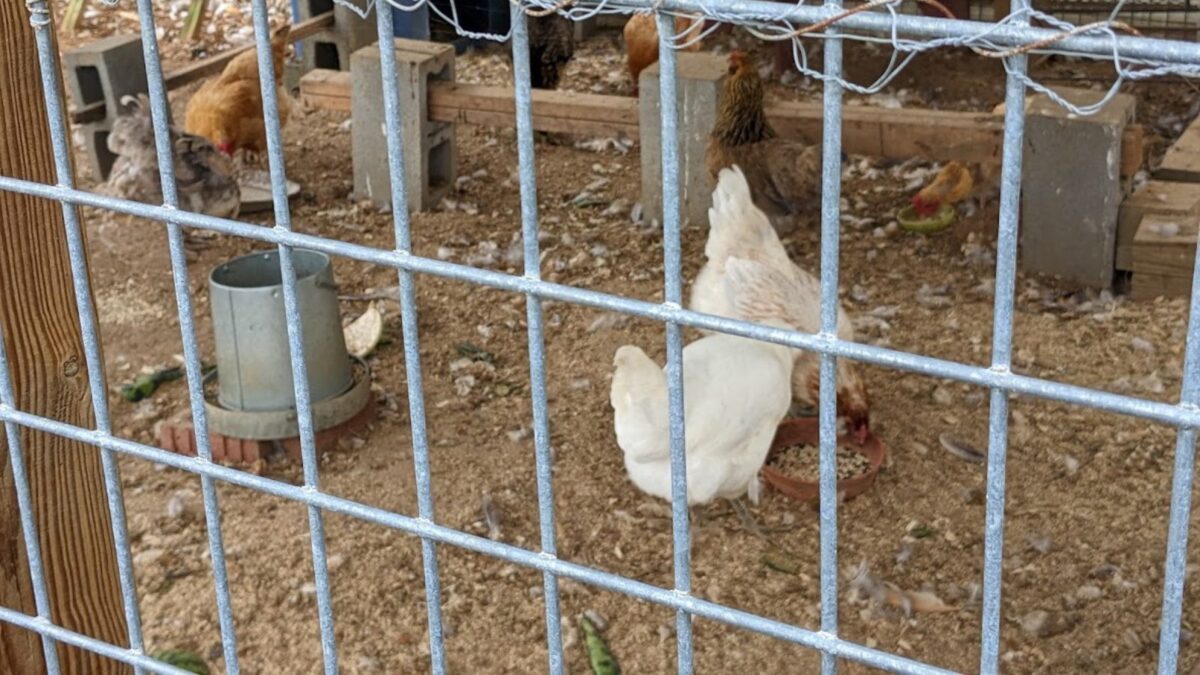
Your run should be constructed of 2″x4″ livestock fencing. There are two types available:
- woven wire
- welded wire
When keeping only chickens, the welded wire is sufficient and more affordable. Ideally, you will want to dig down in the ground about a foot and bury the wire. This will help to deter digging predators from getting into the pen.
Some folks will put concrete into the trench to reinforce the foundation against digging. Your fence should be at least 5’ tall to discourage your birds from flying over and making themselves vulnerable outside their enclosure. Clipping the flight feathers will also help with this.
To deter flying predators, cover your smaller run with wire mesh. For larger runs, criss-cross the run with strung wire about 7’ off the ground. Hang shiny CDs or DVDs from the wire as birds of prey do not like the reflection they create.
For nocturnal predators, a bright motion sensor security light will startle most would-be diners and encourage them to move away to a darker location. Solar-powered predator lights make nighttime prowlers uncomfortable by flashing a red light that gives them the feeling they are being watched.
An electric ground wire is a very effective way to keep predators away from your fence. Of course, you need to have electricity in order for this method to work. There are solar options, but I would be afraid that the battery would wear down and cause a breach in the security. Some folks swear by electric wire and have had great results. I have not tried it personally as I do not have electricity running near my coop and run, but if I did, I would definitely use this method.
Other helpful hints for keeping predators away from your birds
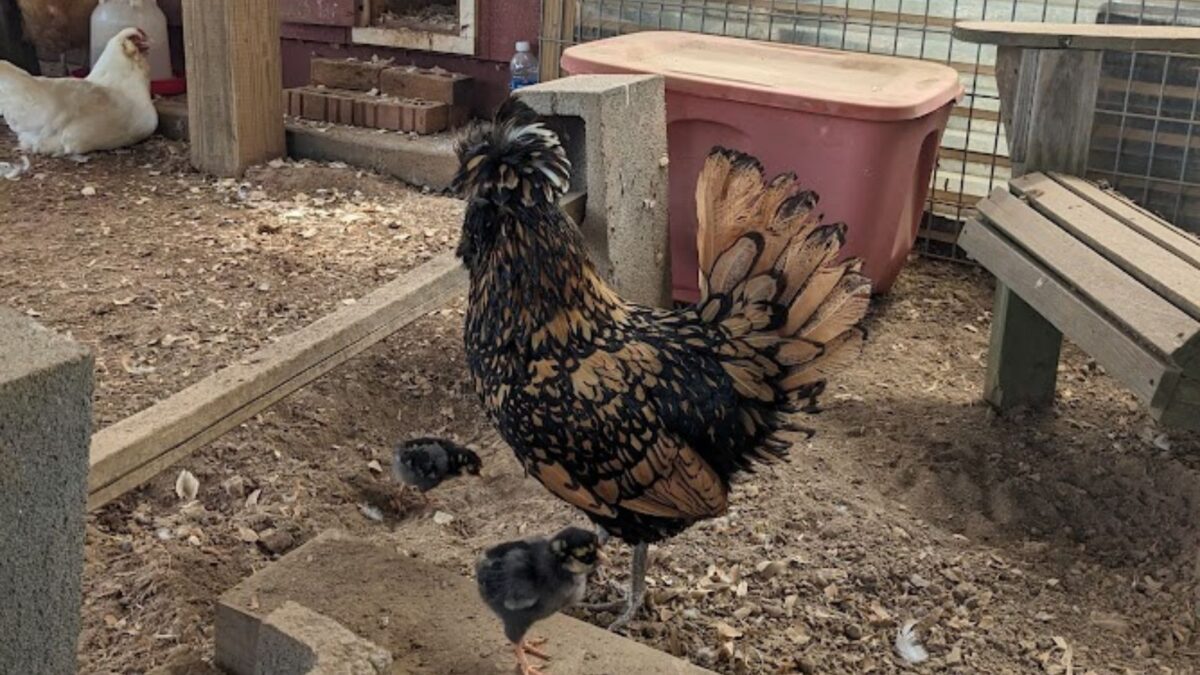
Confining your chickens to an enclosed run and well-built coop is the best way to deter predators. Here are some other helpful ways to keep your birds safe…
- Keep your grass mowed regularly and bush hog any overgrown pastures and fields.
- Invest in a livestock guardian animal such as a guard dog, mini donkey, or geese.
- While birds of prey are protected by the government and cannot be harmed, many predators are able to be trapped and/or shot if they become a nuisance. One of the biggest threats to backyard chickens is neighboring dogs. Establish a good relationship with your neighbors and encourage them to keep their dogs confined to their property. Remember, strong fences make good neighbors.
- As mentioned above, clipping your bird’s flight feathers will help to deter them from escaping their run should you have one that is not covered.
- If you plan to free-range your birds be prepared to lose some or all to the various predators that may reside in your area. The best way to keep them safe is to keep them confined. As they become more comfortable with their surroundings, your bird’s free-ranging area will become larger and they will wander further from the coop which leads to trouble.
Predators are a constant issue amongst backyard chickens keepers. If you follow the suggestions above you should feasibly be able to keep your flock safe and secure, and give yourself peace of mind that they will be protected even when you are not at home to keep an eye on them. It is our duty as their stewards to provide them a stress-free environment to peck, play, and produce those wonderful fresh eggs! Happy chicken keeping.
Learn more about raising chickens
Frequently Asked Questions
There is a snake that keeps getting into my coop and eating all of the eggs. What can I do to stop it?
The best thing you can do to deter a snake without harming it is to locate where it is gaining entry and block that area with hardware cloth. Snakes are able to fit through some pretty small openings, so hardware cloth will be your best method.
Snakes such as black and rat snakes are wonderful at keeping the rodent population down. Most times they prefer mice, but if they can get access to an easy meal they will continue to eat your girls’ eggs.
What types of animals should I watch out for?
There are so many different animals they prey on chickens! It really just depends on where you live and what type of wildlife is in your area. Here in Virginia, the most common predators I have seen are raccoons, opossums, snakes (mostly black and rat snakes), foxes, coyotes, dogs, feral cats, hawks, eagles, and other raptors. Pretty much any animal will look at a chicken as food. That is why it is our responsibility to keep them safe. A chicken truly is the definition of a prey animal as it essentially has no defense against its enemy.
I really want to free-range my chickens so that they can get fresh grass and insects. I feel bad keeping them in a run all of the time. How can I keep them safe?
If you free range there really is no surefire way to keep them safe. A guardian dog would be your best means of protection for free-ranging chickens, and even then you will have to train them extensively to do so. Your best option would be to let them free-range only when you are outside keeping an eye on them. This way you will be able to hear any danger should it arise.
Hopefully, you are more prepared now that you know how to predator proof the chicken coop and run for your flock.
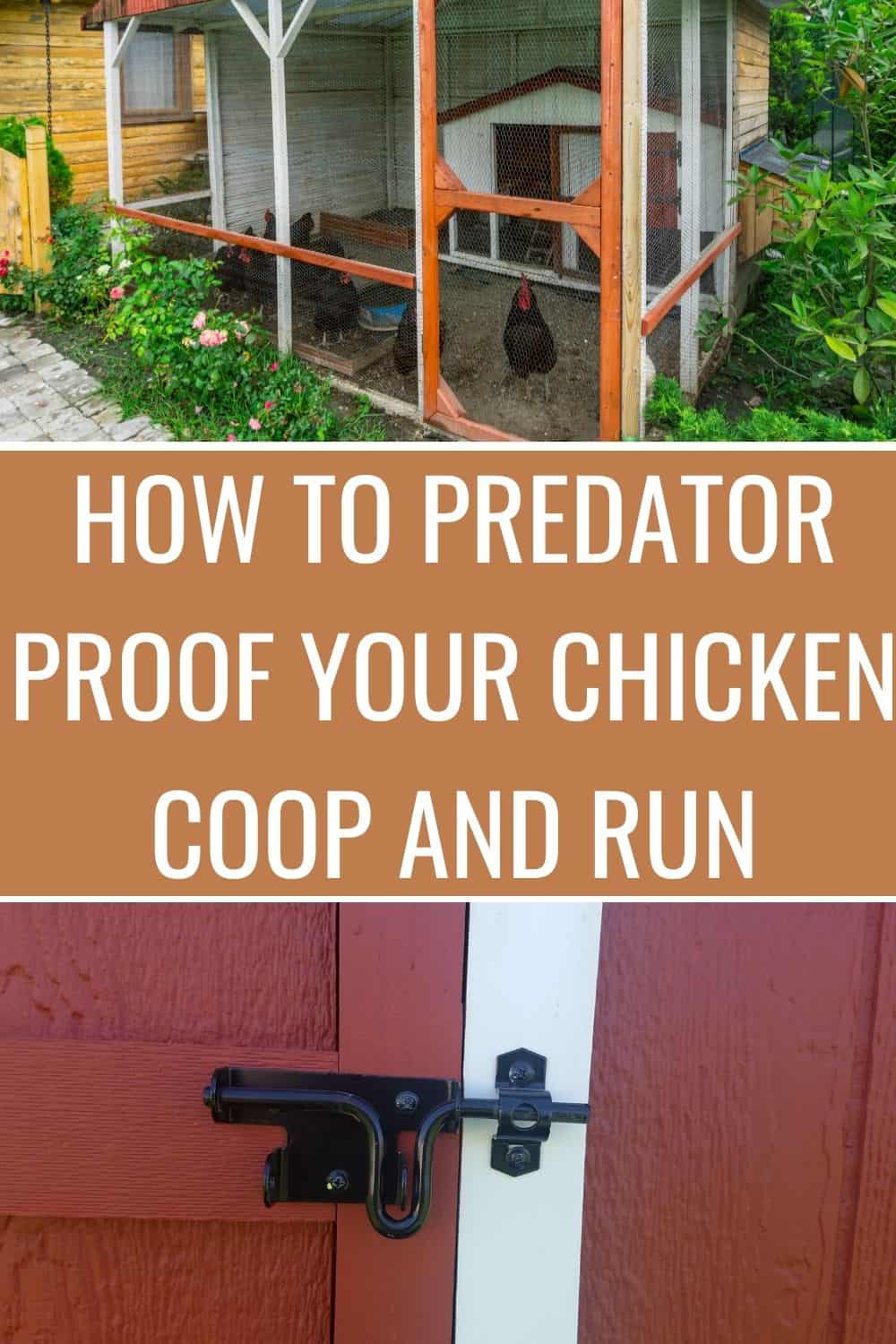

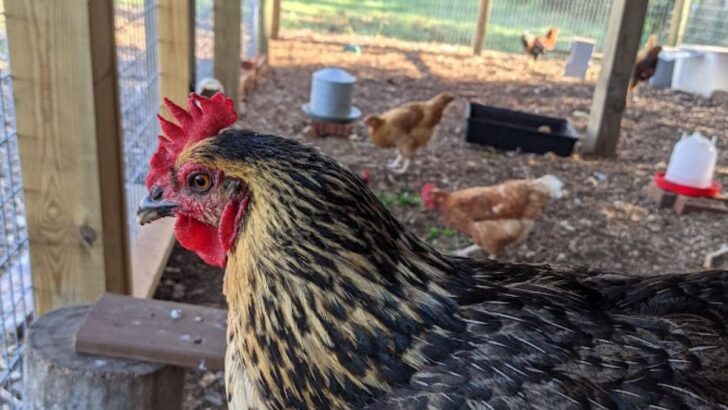

Quick Guide To Raising Backyard Chickens
Thursday 28th of July 2022
[…] How To Predator Proof The Chicken Coop And Run […]
What Is Marek’s Disease In Chickens
Monday 26th of April 2021
[…] How to predator-proof the chicken coop and run […]